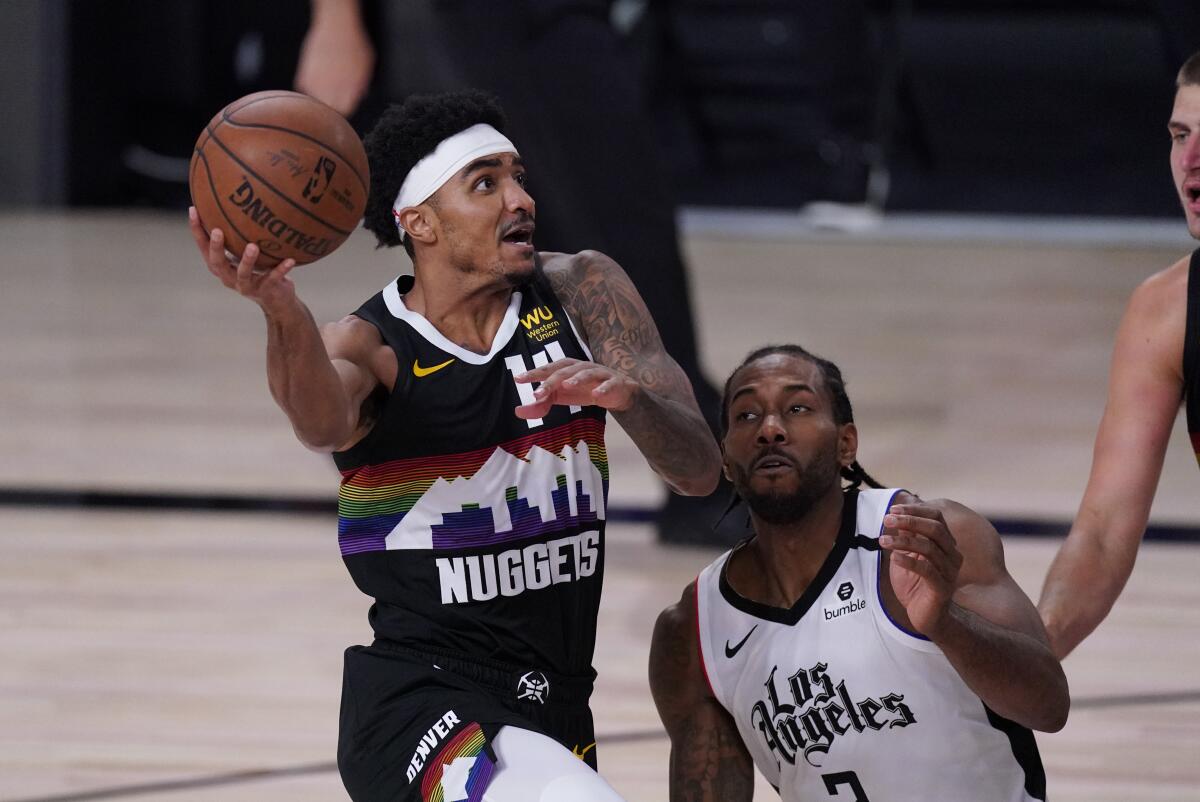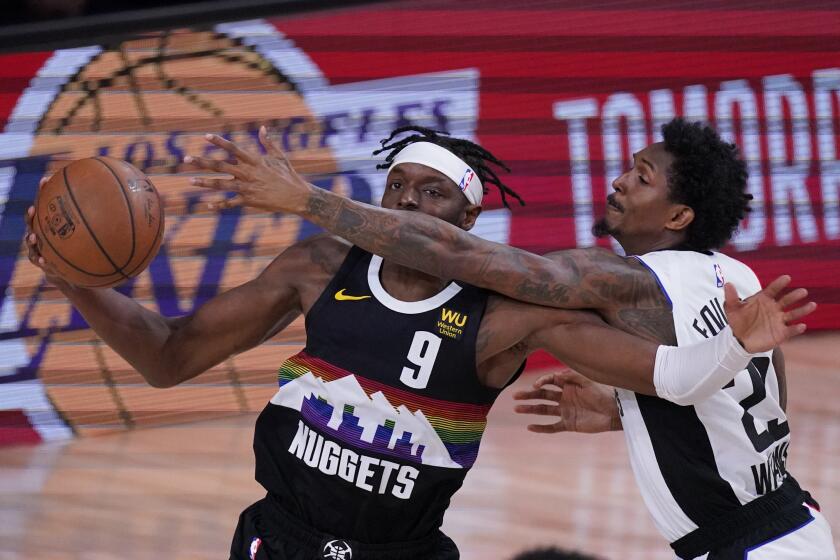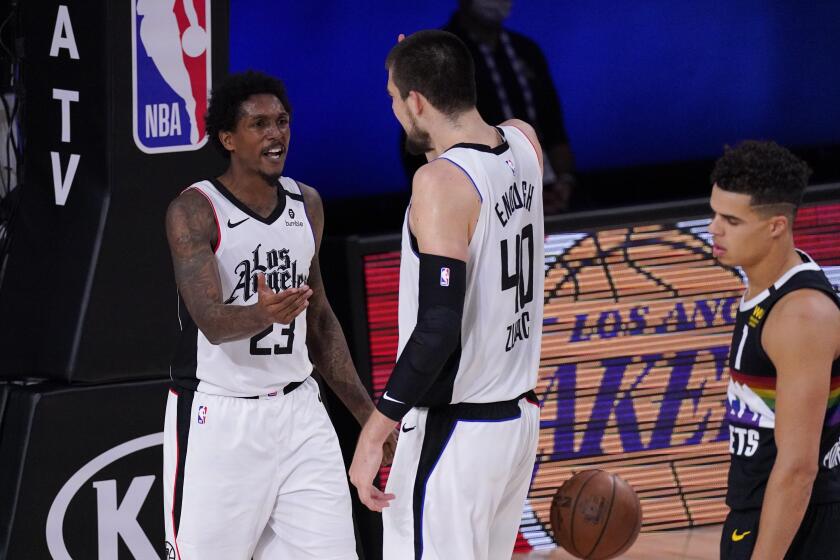Clippers on brink of history: Five takeaways from Game 4 win

- Share via
The Clippers’ Game 4 victory over the Denver Nuggets on Wednesday was not the prettiest offensive performance: 41% shooting overall, and 28% on three-pointers.
Defensively, however, coach Doc Rivers thought it was beautiful. The Clippers held Denver to a season-low 85 points in an 11-point victory to take a 3-1 lead in their Western Conference semifinal.
“No one cares, to be honest” about being one win away from reaching the franchise’s first conference final, Rivers said. “We haven’t done anything yet.”
Five takeaways from Game 4:
1. After multiple centers got into foul trouble in Game 3 and one of them, JaMychal Green, tweaked an ankle, the Clippers activated backup center Joakim Noah for the first time this series. He wasn’t, however, used Wednesday, but that wasn’t the most notable personnel change of the night.
Backup guard Reggie Jackson, who’s seen his minutes decrease with every game this series, didn’t play at all while becoming the odd guard out of the rotation. Jackson has made 54.8% of his postseason three-pointers but has become a defensive liability as part of a bench unit that is already porous. As a fix, Rivers paired starters Patrick Beverley and Paul George with a second unit of Lou Williams, Montrezl Harrell and Green to end the first quarter and begin the second, and again during the fourth quarter’s first four minutes. In eight minutes together Wednesday, that lineup outscored Denver by six points and held the Nuggets to 36% shooting while forcing three turnovers.
The Clippers set tone by holding the Denver Nuggets’ vaunted offense to 12 points in first quarter in Game 4.
“I think in it we have two things: We have enough scoring and we have enough defense,” Rivers said. “So we need that balance. We can’t have all offensive players on the floor if your offense is not running, then you get scored on. So I just like the balance.”
2. Replicating his offensive explosion against Utah in the first round (31.6 points on 55% shooting) was always going to be an extremely difficult, if not impossible, task for Denver guard Jamal Murray, but his regression against the Clippers has been stark: 17.8 points per game on 38% shooting.
Between 3:16 to play in the third quarter and 3:50 left in the fourth, Murray didn’t make a field goal.
“In that Utah series, I thought they just did a great job with their player movement,” George said. “With this team, we’ve got so many defenders, so many guys that like to defend, we’ve been taking that challenge to just pressure him up, stay on his body, and just take him out of the game. But I mean, you saw it, that first series was a big emotional series with him. They were going to have some legs and some fatigue from that first series, so we just — you know, we knew that coming into this series, but we can’t give them no life.”
3. Michael Porter Jr. was one of Denver’s few steady offensive options, scoring 15 points — all in the first half. He took just two shots in 17 minutes after halftime and said his absence was more about coaching than the Clippers.
“I mean, that’s really up to the play calls, that’s really up to the coaches, who they want to put the ball in whose hands,” Porter said. “We kept going to [Nikola] Jokic and ‘Mal [Murray] and they’re two amazing players; you can never get mad at that. But I just think to beat that team, we gotta get more players involved, we gotta move the ball a little bit better. We can’t be predictable.”
The Clippers, as they were in 2015, are one win away from advancing to their first conference final, but they’re oblivious to past failures: ‘We’re still fighting.’
4. Including the playoffs, the Clippers had a 7-9 record entering Wednesday’s game when shooting 30% or worse on three-pointers. They were able to hang on for the win despite 29% shooting from deep because they turned the ball over just 11 times, with only one player — George — responsible for multiple turnovers.
5. When Denver has been at its most dangerous offensively in the series, it has been because not only are its stars, Jokic and Murray, playing well but because their teammates around them have commanded defensive attention, too. Yet outside of the trio of Murray, Jokic and Porter Jr., the rest of the Nuggets made five of their 22 shots in Game 4, including two of their 13 three-pointers.
Greif reported from Los Angeles.
More to Read
Get our high school sports newsletter
Prep Rally is devoted to the SoCal high school sports experience, bringing you scores, stories and a behind-the-scenes look at what makes prep sports so popular.
You may occasionally receive promotional content from the Los Angeles Times.









